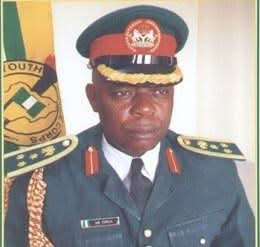If the military elite can be kidnapped and ransomed—who is truly safe in Nigeria?
“If Generals are now raising money to free Generals, what hope is left for the rest of us?”
The recent revelation that top-ranking military officers, including Generals—retired and serving—contributed money to raise a ransom for the release of their kidnapped colleague, Brigadier General MI Tsiga, has shaken the nation to its core, raising troubling questions about national security and the reach of criminality in Nigeria.
In a heartfelt public note dated April 4, 2025, Brigadier General Ismaila Abdullahi (rtd) narrated the harrowing ordeal that followed the abduction of General Tsiga from his home in Tsiga Town, Bakori Local Government Area of Katsina State on February 5, 2025.
What followed was not a swift military operation, but a desperate crowdfunding effort by Nigeria’s elite military personnel, including civilians, businessmen, ambassadors, and university lecturers.
According to Abdullahi, a WhatsApp group named “TSIGA” was formed to mobilize efforts for General Tsiga’s release.
When the kidnappers demanded a ransom of ₦400 million, it was not the Nigerian government or the military apparatus that swung into action—it was private citizens and colleagues who dipped into their pockets to secure the general’s freedom.
“Donations came in pouring like August rains,” General Abdullahi stated. “We had over 300 members on the platform, and everyone gave what they could. It was overwhelming.”
The money was paid directly into General Tsiga’s Unity Bank account, and by March 15, the collective effort had raised enough to meet the kidnappers’ demand. On April 4, Tsiga was finally freed.
The news, while a relief to General Tsiga’s family, has triggered an avalanche of outrage across Nigeria.
“If Generals are now raising money to free Generals, what hope is left for the rest of us?” asked a an X user, echoing the sentiments of millions of Nigerians who feel increasingly unsafe in a country where banditry has spiraled out of control.
This shocking incident lays bare the alarming state of insecurity across the nation, where even those trained and entrusted to protect the country find themselves vulnerable to the very criminals they are supposed to combat.
As the public reels from the implications, a haunting question remains:
If the military elite can be kidnapped and ransomed—who is truly safe in Nigeria?
